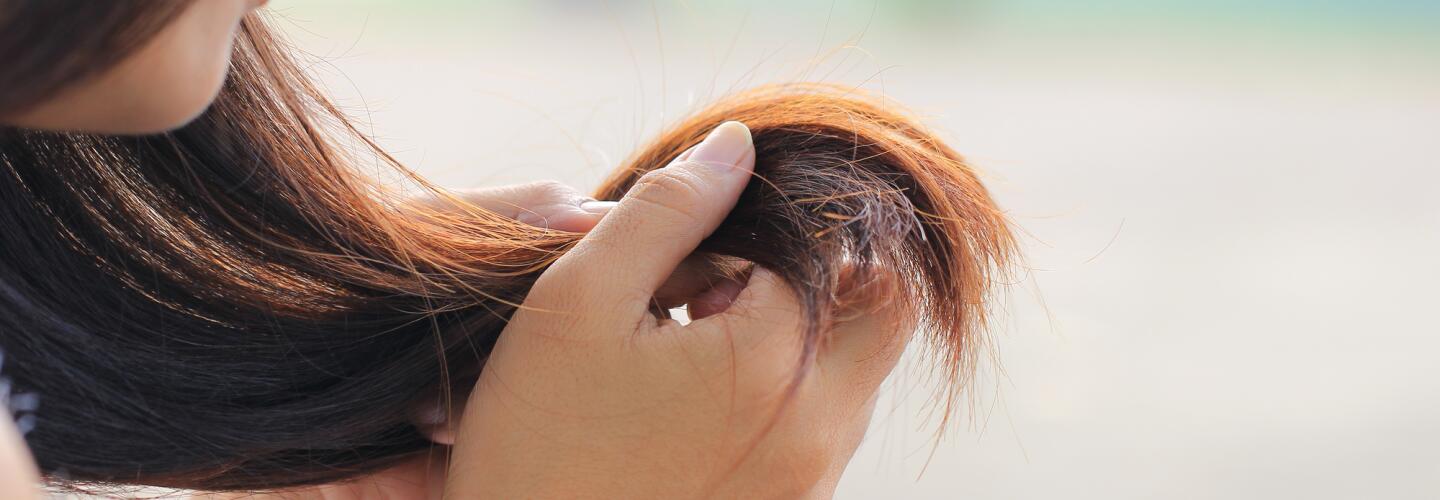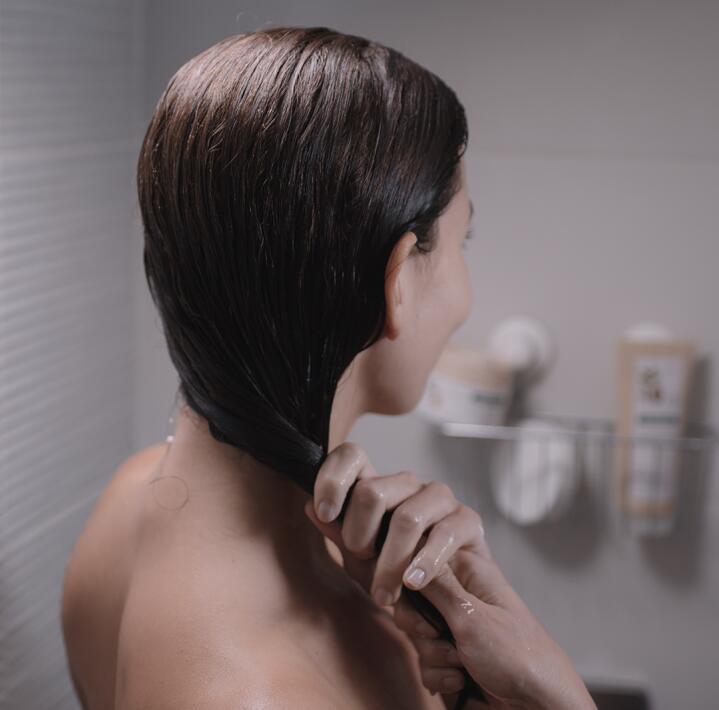Understanding loss of density

Understanding loss of density
Unfortunately, it’s not just skin that ages, hair ages too. What are the sign of hair ageing? Loss of density or thickness.
How to recognise hair ageing and loss of density
In both men and women, hair changes over time. With age, your hair can lose density and thickness.
Some signs may only be noticeable up close. There are many signs of hair ageing: hair is thinner, dull, limp, porous, brittle... Hair seems to lose vitality on all fronts: it grows slower, is more fragile, more difficult to style, and less resistant to external aggressions. For women, the change is noticeable, your ponytail now feel a lot thinner... Quick, your hair needs thickness and vitality. The solution: a tailor-made anti-ageing product that nourishes and revitalises the scalp and naturally provides texture and density.
Why and how does hair age?
The physiology of hair ageing
Over time, there is a general slowing down of vital functions and metabolism:
1. Microcirculation is slowed down causing the hair to lack nutrition
2. Decrease in the size of the hair follicle
3. Decrease in the number of blood capillaries that support the hair root
4. Decrease in sebum production: the scalp becomes dry, uncomfortable and loses its elasticity.
As a result of the reduction in nutrients and essential elements, the bulb thus produces hair of poorer quality. The hair loses its density, the diameter of the hair shaft decreases: this is what we call "fibro-porosity". The more fragile hair is the more vulnerable it is to external aggressions that accelerate ageing, it is a vicious circle.
The different ages of your hair
Hair lives an average of 5 years in women and 3 in men. During these years, hair grows, falls out and then grows back again following a fixed cycle that occurs about 25 times in our lifetime. The growth phase, called anagen, lasts 2 to 7 years and allows hair production. This is followed by a resting phase (catagen phase) during which the hair stops growing and finally the telogen phase, during which the hair is detached from its follicles and falls out.
All the hairs on our head are not at the same stage of the cycle: they grow and fall out at different times. This explains why we all lose a few hairs every day. Under healthy conditions, the hair capital ensures a significant mass of hair until at least the age of 75 (25 cycles of 3 years) for men and 125 years for women, even if the hair tends to be less thick after the age of 35.
Good habits for densifying your hair
5 tips to fight hair ageing and loss of density
- Just like for combating skin ageing, we should follow a healthy lifestyle with as little stress as possible, which has a direct impact on hair.
- We should follow a balanced diet to bring the right nutrients to the metabolism and drink a lot of water, in addition, you can add food supplements to provide strength, resistance and flexibility to the hair fibre. KeratinCAPS contain selenium and zinc which each contribute to the maintenance of normal hair.
- We can rebalance our intestinal microbiota to regain healthy hair with a probiotic treatment.
- Avoid hairstyles that can be damaging, such as tight braids or buns that can put tension on the hair.


How to build a haircare routine that works for you
A good haircare routine should have 3 steps, after identifying the needs of your scalp and hair lengths.
NEWSLETTER
Nature often has the solution...
All our tips for taking care of yourself with products containing naturally-drived ingredients.

